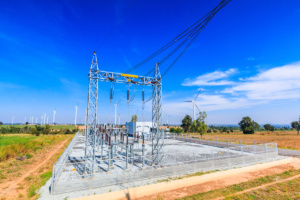Why produce hydrogen from fossil fuels? How to do it? And what has CO2 capture and storage (CCS) got to do with it?
Hydrogen production from fossil fuels with CCS could be a key transition technology for moving in the direction of a sustainable hydrogen-using society, that contributes to fulfilling the ambitions of the Paris Agreement from the United Nations Climate Change Conference, COP21.
Producing hydrogen from fossil fuels, while capturing the CO2 for transport and storage, is a matter of matching hydrogen and CO2 separation technologies in a best possible manner.
In Paris, the politicians decided that man-made CO2 emissions must be curbed, in order to limit the increasing global average temperature. They agreed that we need to pursue efforts to limit the temperature increase to 1.5oC. In practice, this will require global efforts to substantially reduce CO2 emissions. Against this background, an increased use of hydrogen, in particular for transport and industrial purposes, may prove to be essential for a sustainable society. In a long-term perspective, large-scale hydrogen production by electrolysis of water, relying on abundant electric power generation from renewable sources would be preferable.

(…) an increased use of hydrogen, in particular for transport and industrial purposes, may prove to be essential for a sustainable society.
But on a shorter term, in order to accelerate the deployment of hydrogen production and use, it could be necessary to turn to hydrogen production from fossil fuels. But hydrogen production from fossil fuels inevitably generates CO2 as a by-product, and must therefore be combined with CCS in order to minimize CO2 emissions to the atmosphere.
We provide an overview of technology options in a new paper
In 2015 the IEA published a Technology Roadmap for Hydrogen and Fuel Cells with suggested pathways to meet the demand for hydrogen within a scenario for high hydrogen use that limits global warming to 2oC (The “high-hydrogen 2DS”) at lowest cost, assuming carbon prices for emissions, for US, EU 4 and Japan. In these scenarios renewables (renewable power and biomass) account for 12-38% of the hydrogen production in 2050, while fossil fuels with CCS account for as much as 58-81%.
(…) hydrogen production in 2050 (…) fossil fuels with CCS account for as much as 58-81%
In our paper entitled Hydrogen Production with CO2 capture, that was recently published in the International Journal of Hydrogen Energy, we provide an overview of the different technology options that are readily available as well as under development for hydrogen production combined with CCS. The paper was written within the activities on CO2 capture within the BIGCCS research centre. It was submitted before COP21, and we believe its contents are even more relevant after the Paris Agreement.
Hydrogen from fossil fuels with CCS is a key transition technology
Basically, hydrogen production with CCS could be a key transition technology in the future.
In short, our paper provides an overview of
- Hydrogen production from fossil fuels (reforming or gasification), and how CO2 is an unavoidable by-product in this process
- What separation technologies are available and under development to separate hydrogen and CO2 (absorption, adsorption, membranes, phase separation)
- Advanced technologies under development where hydrogen and CO2 are separated as an integral part of the hydrogen production process (membrane reactors, sorption-enhanced hydrogen production, chemical looping hydrogen production)
- CO2 and hydrogen product purity requirements
- Examples of existing large-scale hydrogen plants with CO2 capture
- A discussion on selection of process route to produce both hydrogen of sufficient purity and CO2 of transport quality
Furthermore, the paper provides a brief outlook on hydrogen production and use for the transport, power generation and industrial sectors.
As authors, it is our hope that this review on methods for production and purification of hydrogen from fossil fuels can stimulate further research on and development of technologies for low-emission hydrogen production.
Find out more about research into the various methods of CO2 capture.











Comments
No comments yet. Be the first to comment!